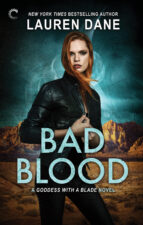|
Sep
28 2006 | ||
This is from the ALA site (a handy site to have bookmarked!)
What You Can Do to Fight Censorship and Keep Books Available in Your Libraries
Stay informed. If you read or hear about a challenge at your school or public library, support your librarian and free and open access to library materials. The ALA Office for Intellectual Freedom estimates they learn of only 20 to 25 percent of book challenges. Let us know if there is a challenge in your community. Find out what the policy is for reviewing challenged materials at your school or public library. Join the Intellectual Freedom Action News (IFACTION) e-list.
Get involved. Go to school board meetings. Volunteer to help your local school or public library create an event that discusses the freedom to read and helps educate about censorship—maybe a film festival, a readout, a panel discussion, an author reading or a poster contest for children illustrating the concept of free speech.
Speak out. Write letters to the editor, your public library director and your local school principal supporting the freedom to read. Talk to your neighbors and friends about why everyone should be allowed to choose for themselves and their families what they read. Encourage your governor, city council and/or mayor to proclaim “Banned Books Week – Celebrating the Freedom to Read” in your state or community.
Exercise your rights! Check out or re-read a favorite banned book. Encourage your book group to read and discuss one of the books. Give one of your favorite books as a gift. The 100 most challenged books of the 1990s is a good resource!
Join the Freedom to Read Foundation. The Foundation is dedicated to the legal and financial defense of intellectual freedom, especially in libraries. You can also support the cause by buying Banned Books Week posters, buttons and T-shirts online.
And another thing – authors have to stand up for each other and speak up when we see something wrong happening. I know it’s uncomfortable to be the one who speaks out and it makes other people uncomfortable too. But it SHOULD be uncomfortable for people who want to shove what other authors do into dark corners. People SHOULD be uncomfortable for whining about having to simply see a book cover they don’t like or a book they don’t like on the shelf. We’re adults and we should act like it and we should not be raising our children to be so soft they fall apart at the mere idea that Harry Potter might be in the library. If that’s not part of your value system, don’t buy them, read them or check them out. But there’s no reason for you to stop anyone else from doing so if they choose.




